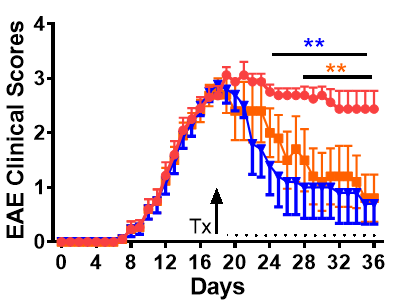Novel Estrogen Receptor ß (ERß) Drugs for the Treatment of Multiple Sclerosis (MS)
Background
Multiple sclerosis (MS) is an autoimmune, demyelinating, and neurodegenerative disease of the central nervous system (CNS) with no known cause or cure. Currently available therapeutic agents approved for the treatment of multiple sclerosis (MS) reduce relapse rates, but do not reverse or prevent neurodegeneration nor initiate myelin repair. There is thus a great need for effective therapies against MS.
Brief Description
Prof. Seema K. Tiwari-Woodruff from the University of California, Riverside, Prof. John Katzellenbogen and colleagues from the University of Illinois have developed novel estrogen receptor β (ERβ) drugs for the treatment of MS. These novel MS drugs are specific for ERβ and have tremendous potential for the treatment of MS as well as other neurodegenerative diseases. In general, estrogens have anti-inflammatory and neuroprotective activities and clinically reduce the severity of MS and other neurodegenerative diseases. The compounds are more superior to other estrogenic drugs due to their specificity for ERβ and lack of undesirable effects such as feminization and increased risk of cancer.
Fig 1: Therapeutic treatment with the UCR ERβ ligands began at peak disease (day 17) and was continued daily till day 36. ERβ ligands (blue, and orange) significantly attenuated clinical disease severity compared to vehicle treatment (red).
Applications
- For the treatment of Multiple Sclerosis (MS) and other neurodegenerative diseases without undesirable side effects such as feminization and increased risk of cancer.
Patent Status
| Country | Type | Number | Dated | Case |
| United States Of America | Issued Patent | 12,286,407 | 04/29/2025 | 2018-285 |
| United States Of America | Issued Patent | 11,673,866 | 06/13/2023 | 2018-285 |
Additional Patent Pending
Related Materials
Contact
- Grace Yee
- grace.yee@ucr.edu
- tel: View Phone Number.
Other Information
Keywords
estrogen receptor ß, neurodegenerative diseases, ERß, multiple sclerosis
